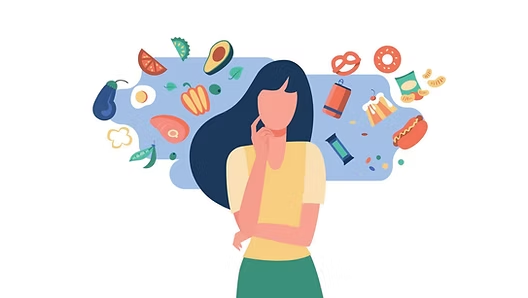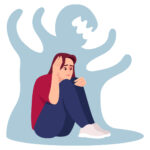Bulimia nervosa is an eating disorder that causes you to eat large amounts of food at one time (binge) and then get rid of it (purge). The physical, behavioural and emotional symptoms vary. The exact cause of bulimia is unknown — it may be a combination of genetic factors and learned behaviours. Education and symptom awareness may prevent bulimia.
Causes
Biological Factors
Genetics: Individuals with a family history of eating disorders, mood disorders, or substance abuse are at higher risk. Neurochemical Imbalances: Imbalances in neurotransmitters like serotonin, dopamine and norepinephrine may affect appetite regulation, mood, and impulse control. Hormonal Influences: Hormonal changes during puberty or menstrual cycles can trigger or exacerbate bulimic behaviour.
Psychological Factors
Depression and Anxiety: These mood disorders frequently co-occur and may drive binge-purge cycles. Trauma and Abuse: A history of sexual, physical, or emotional abuse is a known risk factor. Body Dissatisfaction: Overvaluation of body shape and weight is a key feature in bulimia nervosa.
Sociocultural Factors
Cultural Pressure to Be Thin: Media, fashion, and fitness industries often idolise thinness, which can lead to unhealthy dieting and body image distortion. Social Comparison: Constant comparison to peers or influencers (especially on social media) can increase body dissatisfaction.
Environmental and Life Events
Dieting History: Restrictive dieting can lead to binge eating due to both physiological and psychological deprivation. Major Life Changes or Stress: Events such as starting college, breakups, or the death of a loved one can trigger or worsen symptoms.
In conclusion, many people worry about their weight. But people with bulimia nervosa have an obsession with food and weight. Bulimia nervosa is a serious condition that can affect your mental and physical health. If you think you have bulimia nervosa, don’t be embarrassed about seeking help. With proper medical care and mental health counselling, you can get better. Take the first step to protecting your well-being by talking to your healthcare provider. This information are gotten from Cleaveland clinics.



